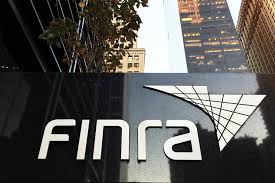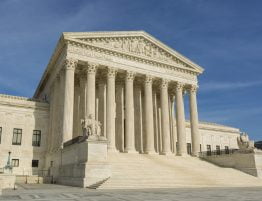Mandatory Consumer Arbitration on the Eve of the Election
SAC Contributing Legal Editor and Board of Editors Member
[This is adapted from a post originally published in the author’s blog at the Securities Arbitration Commentator. Reposted with permission of and thanks to SAC!]
Readers of my blogs here and at Arbitration Resolution Services may recall that I like to make predictions, especially how elections might impact arbitration. In fact, I’ve threatened/promised to do a post-election blog post, just like I did in 2014. Just a week removed from Election Day I offer now my thoughts on the state of mandatory or “forced” arbitration as we are about to elect the next President of the United States.
Federal Agencies Have Been Busy
Federal agencies have been busy this year attacking mandatory arbitration of consumer and employment disputes. We’ll cover securities arbitration a bit later, but suffice it to say that the anti-arbitration forces are pursuing a “death by a thousand papercuts” strategy that aims to attack arbitration by targeting discrete areas where predispute arbitration agreements (“PDAAs”) are prevalent in consumer and employment contracts. And, for the most part they are doing this without direct statutory imperative, leading to legal challenges.
- Department of Education: The DOE in late October issued final regulations that will ban mandatory predispute arbitration agreements and class action waivers (“CAWs”) in college enrollment agreements. Specifically, the DOE on October 28th announced final regulations via a Press Release. The regulations cover a wide array of higher ed student protections, with arbitration being one of them. The final regs “strengthen the limitations on pre-dispute arbitration agreements that prevent students from taking institutions to court by permanently banning any pre-dispute arbitration agreements for all Direct Loan borrowers for disputes related to the educational services provided or the making of Direct Loans, regardless of whether such clauses are a condition of enrollment. These provisions not only allow students to choose where to pursue claims against an institution after claims arise, but also prohibit institutions from banning class action lawsuits by students.”
- Centers for Medicare and Medicaid Services: The agency issued a final regulation on September 28th banning nursing homes and long-term care facilities receiving federal funds from using mandatory predispute arbitration agreements. Section 483.70(n)(1), appearing on page 689 of the massive regulation, states: “A facility must not enter into a pre-dispute agreement for binding arbitration with any resident or resident’s representative nor require that a resident sign an arbitration agreement as a condition of admission to the LTC facility.”
Already the regulation is being challenged in court. On October 17th the American Healthcare Association and other groups filed a suit challenging the new rule. American Health Care Ass’n v. Centers for Medicare, Docket No. _______ (N.D. Miss. Oct. 17, 2016), seeks an injunction and asserts that CMS exceeded its statutory authority and that the regulation runs afoul of the Federal Arbitration Act.
- Department of Labor – Employment Contracts: President Obama signed the Fair Pay and Safe Workplaces Executive Order 13673 in July 2014 barring companies with federal contracts valued at over $1 million from mandating arbitration of Title VII or sexual harassment or assault claims; a slightly revised Order was issued last August. The Department of Labor issued Final Guidance and the Federal Acquisition Regulatory Council published the Final Rule a day later. In late October, implementation of the rules was enjoined. The 32-page Order in Associated Builders and Contractors of Southeast Texas v. Rung, No. 1:16-cv-00425 (E.D. Tex. Oct. 24, 2016), finds that there’s a “substantial likelihood of success on the merits” on the Plaintiffs’ claim that the Federal Arbitration Act prohibits the ban on PDAAs.
- Department of Labor – Fiduciary Standards: The Department approved a new fiduciary standard rule for those providing investment advice in connection with retirement accounts. The regulation allows for use of a Best Interests Contract (“BIC’) with investors containing a predispute arbitration agreement, but class action waivers are not permitted. A suit has been filed challenging this part of the regulation. Financial for Lutherans v. Perez, No. 0:16-cv-03289, which was filed September 29th in the District of Minnesota, asserts that DOL has exceeded its statutory authority: “There is no provision in ERISA that indicates Congress’s intent to create a class action remedy that must be exclusively pursued in a judicial forum. To the extent Congress has spoken to the issue, it has unequivocally stated in the Federal Arbitration Act (“FAA”) that private arbitration agreements must be honored as a preferred means of resolving disputes. As a result, in purporting to adopt the BIC Exemption, DOL has exceeded its authority under the APA [Administrative Procedure Act].” The suit seeks an injunction against implementation of this part of the rule.
- Federal Trade Commission: An August 22nd Press Release and letter from Public Citizen urges the Federal Trade Commission to ban mandatory PDAAs in solar leasing contracts. So far, there has been no action. Ditto for the Justice for Telecommunications Consumers Act – S. 2897 – which would amend section 2 of the Federal Arbitration Act to ban mandatory PDAAs in a wide range of telecommunications contracts involving consumers, such as cell phones, land lines and cable and internet service. There has been no action on this bill, which was introduced in April, and has been read twice and referred to the Judiciary Committee.
Financial Arbitration – A Different Animal?
DOL acted favorably – at least neutrally – about PDAAs in Best Interest Contracts for ERISA accounts when all these other federal regulatory agencies are taking hostile action. Perhaps the Department sees the securities business as a case apart? Right now, CFPB, DOL, and SEC/FINRA have a consistent approach to the financial arbitration area: PDAAs are OK but class action waivers are not. I point out here that this is precisely the approach FINRA has taken for years in Rule 2268(d), and Rule 12204(d). The latter provides that an industry party “may not enforce any arbitration agreement against a member of a certified or putative class action with respect to any claim that is the subject of the certified or putative class action until: the class certification is denied; the class is decertified; the member of the certified or putative class is excluded from the class by the court; [or] the member of the certified or putative class elects not to participate in the class or withdraws from the class …”
- Consumer Financial Protection Bureau: Dodd-Frank section 1028 directs the CFPB to study the use of PDAAs in contracts for consumer financial products and services and later report to Congress, and ban, limit or impose conditions on their use if such action “is in the public interest and for the protection of consumers.” What would be covered? Any regulation “would apply generally to the consumer financial products and services that the Bureau oversees, including credit cards, checking and deposit accounts, certain auto loans, small-dollar or payday loans, private student loans, and some other products and services as well.”
The CFPB in May issued a proposed rule that would: 1) ban class action waivers (“CAWs”) in predispute arbitration agreements in contracts for consumer financial goods and services; and 2) require regulated financial institutions to file customer claims and awards data with the CFPB, which the Bureau may choose to publish. In support of the proposed CAW ban, CFPB’s 34-page outline references FINRA’s class action rule on page 17. While there’s no final rule yet (CFPB is analyzing the 51,801 comments contained in 6,246 comment letters), and thus no suits filed against it, the entire status of the Bureau is now somewhat up in the air. A divided DC Circuit in PHH Corporation v. Consumer Financial Protection Bureau, No. 15-1177 (DC Cir. Oct. 11, 2016), held that the Consumer Financial Protection Bureau’s structure, which has a single Director with virtually unlimited, unchecked authority, is unconstitutional. Rather than Order the Bureau’s dismantling, the Court restructured it by declaring the CFPB an executive agency reporting to the President. CFPB has until November 28th to decide if it wants to appeal or seek a rehearing en banc.
- SEC: The Exchange has similar authority under Dodd-Frank section 921 to ban or impose limitations on PDAA use in customer agreements. So far, it has not acted, but it probably will at some point by doing a study of FINRA arbitration. It will not, in my opinion, ban PDAAs outright. Think about it. To ban PDAAs in customer-broker contracts, the SEC would have to find that doing so is “in the public interest and for the protection of investors.” Essentially, the SEC would be saying: “We’ve been supervising customer-broker arbitration for decades. But, you know, we just realized it’s a terribly unfair system.” On the other hand, a finding that says, “We’ve studied customer-broker arbitration and we’ve concluded that it’s a fair process. But, you know, these few changes will make it even better” is politically tenable.
And the Supreme Court?
The Supreme Court has already taken on one arbitration-related case and in my opinion will take another.
- Nursing Home Admission Agreements: First, if you thought the Supreme Court in AT&T Mobility LLC v. Concepcion, 563 U.S. 333 (2011), laid to rest any questions about whether the Federal Arbitration Act preempts state decisional laws impinging on arbitration, think again. The Court in late October granted certiorari in another preemption case, this one involving an arbitration agreement in a nursing home admission agreement signed by an attorney-in-fact. The case on appeal is Extendicare Homes, Inc. v. Whisman, 478 S.W.3d 306 (Ky. 2015), den. (Feb. 28, 2016). The petition for cert. was granted without explanation in an Order dated October 28th (see case no. 16-32, sub nom. Kindred Nursing Centers v. Clark, page 1).
- National Labor Relations Board: In recent months, three petitions for certiorari have been filed seeking SCOTUS review of the NLRB’s its anti-arbitration policy. Decisions in recent months have resulted in a major split between the federal circuits. Lewis v. Epic Systems, Inc., 823 F.3d 1147 (7th May 26, 2016), is illustrative. There, a unanimous Seventh Circuit held that a class action waiver in an employment arbitration agreement violated the NLRA. The Epic Systems Court said: “In short, Sections 7 and 8 of the NLRA render Epic’s arbitration provision unenforceable … We conclude that, insofar as it prohibits collective action, Epic’s arbitration provision violates Sections 7 and 8 of the NLRA.” Yet, just a week after Epic was decided a unanimous Eighth Circuit in Cellular Sales of Missouri LLC v. NLRB, 824 F.3d 772 (8th Cir. June 2, 2016), held that enforcing the PDAA is permitted by the NLRA, but the PDAA’s chilling effect on filing unfair labor charges is not. Then came Morris v. Ernst & Young, No. 13-16599 (9th Cir. Aug. 22, 2016), where the Ninth Circuit, in a 2-1 decision also moved into the “no class action waivers” camp. Previously, in Murphy Oil USA, Inc. v. NLRB, 808 F.3d 1013 (5th Cir. 2015), the Court delivered a unanimous, stinging rebuke to the NLRB: “Our decision [in Murphy Oil]was issued not quite two years ago; we will not repeat its analysis here. Murphy Oil committed no unfair labor practice by requiring employees to relinquish their right to pursue class or collective claims in all forums by signing the arbitration agreements at issue here” (citations omitted).
Epic Systems, E&Y, and the NLRB (in Murphy Oil) are seeking SCOTUS review. Epic Systems on September 2nd petitioned the Supreme Court for certiorari. Less than a week later, E&Y followed suit with its own petition, and on September 9th the National Labor Relations Board sought certiorari in Murphy Oil. The issues in each petition are similarly framed.
I predict SCOTUS will grant certiorari in one of the three cases, most likely Murphy Oil because it involves NLRB as a party.
Oh, and What About the Next President?
Speaking of predictions, my Presidents Day blog post, The Presidents and Arbitration: from Washington to Obama – and Beyond, at one point delved into the arbitration views of the candidates. As I said back in February, the current major party nominees have very different worldviews about arbitration.
As a Democrat, Hillary Clinton will follow the Democrat party anti-mandatory-arbitration company line. She personally came out against mandatory arbitration in May after the CFPB proposed its rule limiting class action waivers in consumer financial contracts. Said the presumptive Democratic nominee: “Mandatory arbitration clauses buried deep in contracts for credit cards, student loans, and more prevent American consumers from having their day in court when they’ve been harmed.” On the other hand, she won an arbitration in March 2005 over use of the domain name hillaryclinton.com, so who knows her “private position” about arbitration? Check out the award.
Donald Trump evidently likes arbitration, both as a businessman and as a successful user of the process. In 2012, he won $5 million in a dispute with a former Miss USA contestant who defamed the pageant, which he owned. More recently, Mr. Trump in 2015 filed an arbitration claim against NBC after the network cancelled a contract to televise the Miss USA and Miss Universe pageants. This followed Mr. Trump’s negative comments about Mexican immigrants. But, he and Secretary Clinton do have something in common: he, too, won an Internet domain name arbitration, back in 2010. And I read in the Indisputably blog that even Mr. Trump’s agreement with campaign volunteers has a PDAA giving the campaign the unilateral right to require arbitration of disputes.
Of course, life is full of variables. What if Congress in whole or in part goes Democratic? Or what if the Republicans get filibuster-proof majorities? Will the Arbitration Fairness Act finally be enacted? What’s the fate of the CFPB? What happens to the Supreme Court?[1] Will there be a Justice Ted Cruz? Or Obama?[2] Or Christie? Will there be another Justice Warren? For the answers, read my post-election blog post next week!
——————————–
*George H. Friedman, an ADR consultant and Chairman of the Board of Directors of Arbitration Resolution Services, Inc., retired in 2013 as FINRA’s Executive Vice President and Director of Arbitration, a position he held from 1998. In his extensive career, he previously held a variety of positions of responsibility at the American Arbitration Association, most recently as Senior Vice President from 1994 to 1998. He is an Adjunct Professor of Law at Fordham Law School. Mr. Friedman serves on the Board of Editors and is a Contributing Legal Editor of the Securities Arbitration Commentator. He is also a member of the AAA’s national roster of arbitrators. He holds a B.A. from Queens College, a J.D. from Rutgers Law School, and is a Certified Regulatory and Compliance Professional.
[1] The Court in late October granted certiorari in another preemption case, this one involving an arbitration agreement in a nursing home admission agreement signed by an attorney-in-fact. The case on appeal is Extendicare Homes, Inc. v. Whisman, 478 S.W.3d 306 (Ky. 2015), reh. den. (Feb. 28, 2016). The petition for cert. was granted without explanation in an Order dated October 28th (see case no. 16-32, sub nom. Kindred Nursing Centers v. Clark, page 1).
[2] I think deep down our current president has a fondness for arbitration. As a young attorney with Davis, Miner, Barnhill & Galland, in Chicago, President Obama in 1994 argued successfully to enforce an NASD arbitration Award in the Seventh Circuit in Baravati v. Josephthal, Lyon & Ross, Inc., 28 F.3d 704 (7th Cir. 1994).





